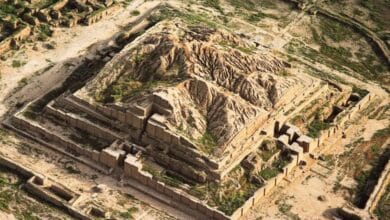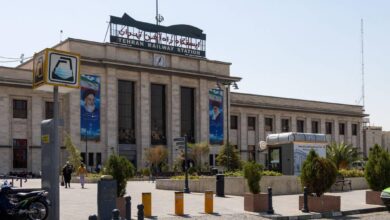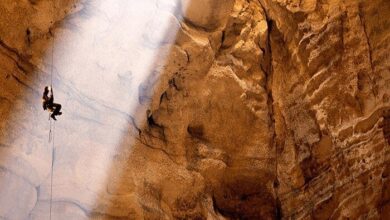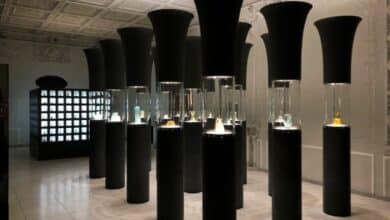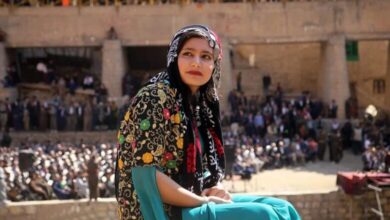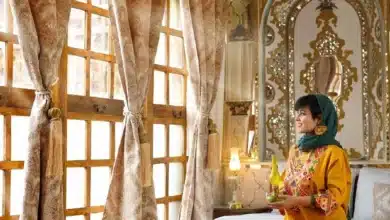Jameh Mosque of Yazd: A Portal to Spiritual History
Discover the Timeless Beauty of Yazd's Jameh Mosque: A UNESCO Heritage Site
Jameh Mosque of Yazd– also called Masjid-i Jameh by the locals- is an imposing testimony to the spiritual and architectural heritage of Iran. Located within the arid city of Yazd, the mosque is far more than a place of communal worship; rather, it is an embodiment of several centuries of Islamic art, culture, and heritage.
This mosque is considered to be one of the most important ones in Iran and has grown with the city from the rise and decline of dynasties, being the place for faith and quiet for centuries.

Contents
Architectural Marvel
The Jameh Mosque was built during the 12th century during the Seljuk era but was significantly remodeled and extended during successive centuries. Its magnificent minarets, at a height of 48 meters, are among the tallest in Iran and rise as one of the symbols of Yazd’s skyline. The complex entry iwan into the mosque has intricate tile work that leads the faithful through a massive courtyard where prayers and adoration can almost continually be heard.

The interior of the mosque is impressive as well, with delicate muqarnas-a form of ornamented vaulting that resembles honeycombs intricate tile mosaics depicting floral patterns and geometric designs that are characteristic of Persian craftsmanship.
The gentle light filtering through the intricately designed colored glasses laced into the windows assumes a surreal quality, pulling one into profound contemplation and communion with the divine.
A Historical Tapestry

The city of Yazd is entwined in history, with its heart being Zoroastrianism and a considerable population of Muslims. At a crossroads of faiths, the Jameh Mosque symbolizes the cultural syncretism which has defined Yazd for many centuries. In its identity as an important center of Islamic worship, it still retains traces of its Zoroastrian predecessors through the conventional Persian garden architecture in the pervading structure.

Through all ages, from a site for public assemblies to a venue for educative congregations, the mosque has played its role very diversely. It is used not just for worship purposes; the mosques were a haven of dialectics, social congregation, and knowledge dispersal. Though now not that significant, the library of the mosque kept a collection of writings contributing much towards the intellectual setup of Tehran.
The Spiritual Significance

From the beauty of its architecture to the depth it has as a spiritual home for the locals, the Jameh Mosque of Yazd seems to reverberate through day and night with its five calls to prayer, beckoning believers to stop for acts of devotion. The mosque brings alive the city as people come together, connecting to faith and each other.

The atmosphere of the mosque essentially embodies the intrinsic values of Islam, including charity, kindness, and social responsibility, into a unique sense of community. Thousands come together every Ramadan to break fasts and hold mass prayers. This feeling of unity glued the bonding among its residents, making the mosque not just a religious edifice but the focal point of social interaction and solidarity in times of joy and adversity alike.
Preservation and Challenges

Among the historical sites in Iran, the Jameh Mosque can not avoid the inadvertent challenges it would have to face with time. Natural weathering, environmental changes, and the effects of tourism necessitate watchful preservation efforts. The place has, in recent years, undergone conscious restoration to uphold its structural integrity and artistic beauty. These local organizations of this mosque, alongside international bodies, realize its importance and commitment towards ensuring that this historical treasure inspires future generations.
It also extends to include awareness of the history and importance of the mosque, which reflects a confluence of architecture, religion, and community. In addition, educational programs for both locals and tourists pursue better understanding of Yazd’s cultural landscape and the mosque’s place within it.
A Journey Through Time

A visit to Jameh Mosque is a passage through a virtual time-gate, from which the rhythms of life spoke with their courts and the devout coming together for solace, finding their attachments to the divine. Every tile and every brick speak to and is imbued with the spirit of resistance and continuation of the mosque and its function within the Yazd community.
The mosque was nothing but a praying area for the tourists and pilgrims alike, full of thick weaves of history, spirituality, and skillful craftsmanship. Hours would be spent studying minute details, walking across its shaded courtyards, and recollecting the number of lives that crossed within these walls.
A Living Heritage

The Jameh Mosque of Yazd is a living heritage site-alive and beyond the dimension of time. Not only is it a witness to the past, but it is also very much active in presenting its community in the realm of spiritual life. It keeps standing at the center of this fast-changing world, bringing a constant reminder of faith, culture, and human touch.
Conclusion
It is a conclusion that Jameh Mosque of Yazd is something more than an architectural masterpiece; it is a most vital portal to the spiritual history of Iran. It beckons all who come, to experience in its beauty of artistry while contemplating deeper meanings regarding faith, community, and heritage. Whether people came to pray, reflect, or simply admire the beauty of its design, the mosque protects the stories of so many souls, always embracing and standing strong. From its minarets reaching to the heavens, as it were, to its intricate mosaics that relate stories of old, Jameh Mosque takes each and every visitor on a deep, insightful journey in a dialogue of past, present, and future-a steadfast guarantee that the beat of Yazd’s spiritual heart drums on well into ages and ages.
Read More
- Zein-o-din Caravanserai: A 400-Year-Old Desert Retreat in Yazd
- Dowlatabad Garden: A Persian Paradise in Yazd
- Travel to Mashhad by Train: Everything You Need to Know
- Taq-e Bostan, the Greatest Construction in Kermanshah
- Pasargadae: Exploring the Heart of the Persian Empire
FAQ
What is the Jameh Mosque of Yazd also known as, and what is its significance?
The Jameh Mosque of Yazd is also called Masjid-i Jameh by locals. It is significant as a testament to Iran’s spiritual and architectural heritage, serving as an important center of Islamic worship and culture for centuries.
When was the Jameh Mosque originally built and what are some of its notable architectural features?
The Jameh Mosque was originally built during the 12th century during the Seljuk era. Notable features include its magnificent minarets, which are among the tallest in Iran at 48 meters, and intricate tile work throughout the complex.
How does the Jameh Mosque embody the cultural syncretism of Yazd?
The Jameh Mosque embodies cultural syncretism by symbolizing the blend of Islamic and Zoroastrian heritage in Yazd, incorporating conventional Persian garden architecture along with its role as a center for Islamic worship and social interaction.

